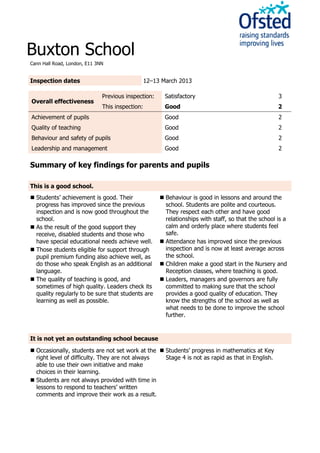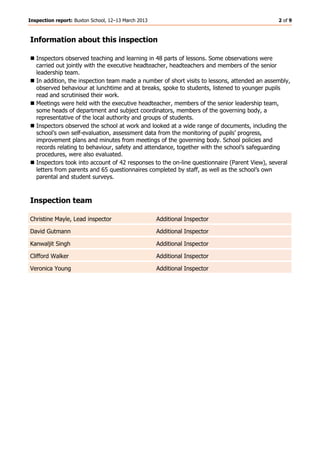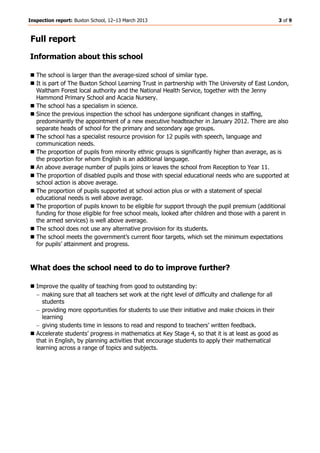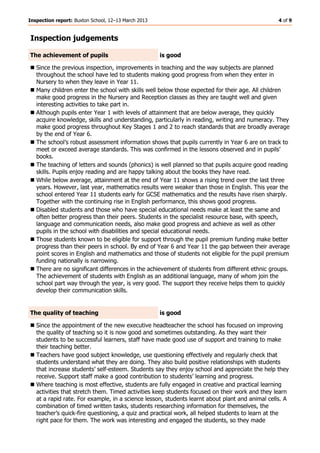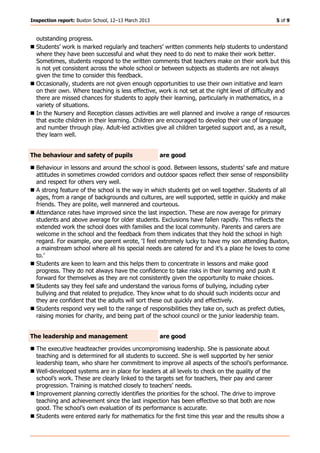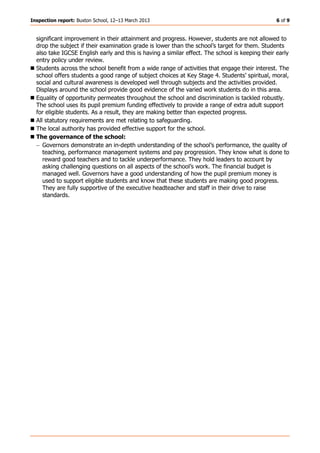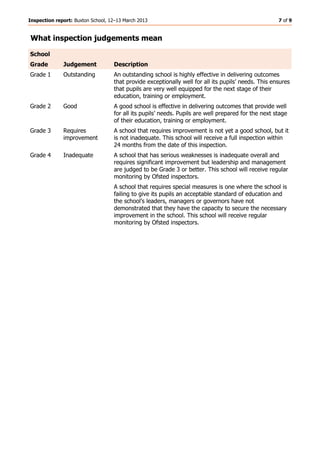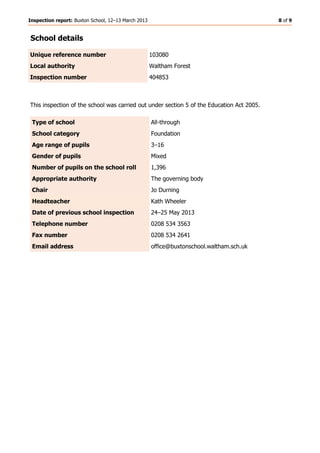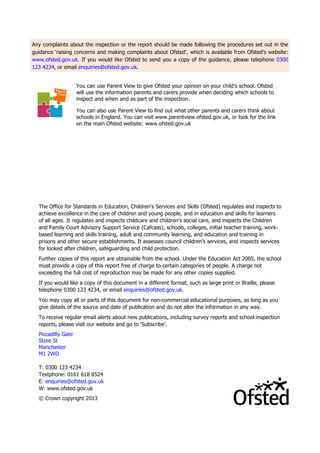This inspection found Buxton School in London to be a good school. Students' achievement has improved since the previous inspection and is now good across the school. Teaching quality is also good, with leaders regularly checking to ensure effective learning. Students behave well and feel safe. While the school is good, occasional lessons do not fully challenge students or allow them to direct their own learning. The inspection report recommends the school focus on further improving teaching quality and accelerating students' progress in mathematics.
